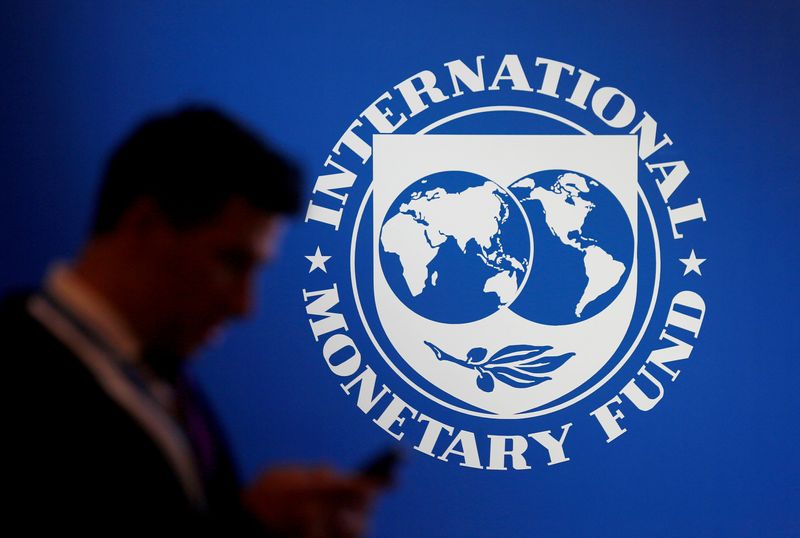IMF backs Latam progressive taxes, fiscal discipline
2022.11.02 08:48
[ad_1]

© Reuters. FILE PHOTO: A participant stands near a logo of IMF at the International Monetary Fund – World Bank Annual Meeting 2018 in Nusa Dua, Bali, Indonesia, October 12, 2018. REUTERS/Johannes P. Christo
By Rodrigo Campos
NEW YORK (Reuters) – The International Monetary Fund will continue to be supportive of progressive tax reforms in Latin America and the Caribbean while fiscal and monetary policies that have worked should be kept in place to give economies support, a top IMF official said on Wednesday.
For most of the region “the story there is actually they have pretty good fiscal and monetary frameworks,” said Nigel Chalk, acting director of the Western Hemisphere Department at the IMF. “So it’s more a question of letting the frameworks work and do their job as they were designed.”
Chalk, speaking ahead of the release of the fund’s regional economic outlook for Latam and the Caribbean, said the focus on lowering debt and zeroing in on containing inflation have been very supportive of the region’s economies.
“With inflation yet to abate and most economies still operating at or near potential, monetary policy should avoid easing prematurely and must stay the course,” said the fund in the regional report.
The fund said last month tightening global financial conditions and high inflation clouded the outlook for Latam and Caribbean economies. While it lifted its output growth forecast for 2022 in the region to 3.5% from a previous 3% estimate, it lowered the 2023 view by 0.3 percentage point to 1.7%.
According to the IMF “a sharp fall in commodity prices and social unrest are important risks,” for Latam and the Caribbean – where street clashes were beginning to pop up even before the pandemic.
With the specter of higher interest rates in the developed world and the expected siphoning of cash out of emerging markets, the fund has given support to reform measures that look to raise more cash but in a progressive way.
“A tax reform that generates more revenue, and puts more money in social systems, in supporting lower income families, supporting the middle class, that’s definitely a more progressive system,” Chalk said, pointing out the fund was “very supportive of the goals of the Chilean tax reform.”
Carbon taxes, which have been discussed across the region, are also on the IMF menu for increasing revenues.
“But we know they’re inherently regressive because the poor spend more of their income on energy,” said Chalk.
“You have to take the money and you have to give that back through social assistance programs in order to make the combined effect on spending and revenue socially equitable.”
GRAPHIC – LatAm & Caribbean GDP growth, projections
[ad_2]
Source link








